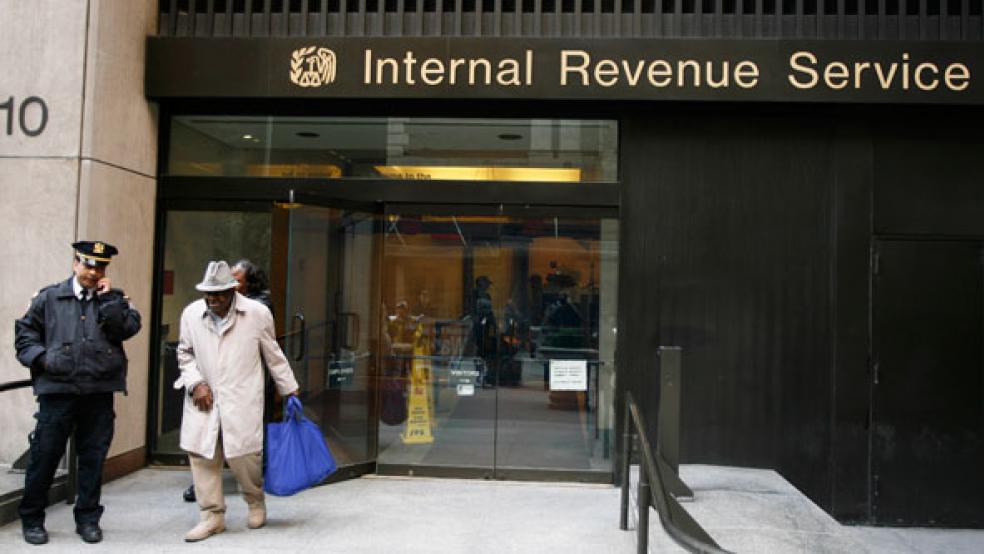The Senate Permanent Subcommittee on Investigations, chaired by retiring Michigan Democrat Carl Levin, on Friday released a 224-page report criticizing an initial investigation of the IRS’s controversial practice of targeting certain groups for extra scrutiny when they applied for tax-exempt status.
In 2011 and 2012, faced with a deluge of applications to form tax-exempt 501(c)(4) “social welfare” organizations after the Supreme Court’s ruling in the Citizens United case, the IRS Exempt Organizations Division had its employees watch out for groups with particular words in their names, including “Tea Party” and “patriot.” The idea? Identify groups that seemed more likely to engage in political activity – and give them extra scrutiny.
Related: IRS Head Defends Destruction of Lois Lerner’s hard Drive
Levin found that an earlier investigation by the Treasury Inspector General for Tax Administration (TIGTA) was flawed. It gave the impression, he suggested, that the targeting was politically motivated when there was ample evidence to suggest that both liberal and conservative groups were targeted.
“After reviewing nearly 800,000 pages of documents and conducting nearly two dozen IRS and TIGTA employee interviews, the investigation found that the IRS used inappropriate selection criteria, burdensome questions, and lengthy delays in processing applications for 501 (c)(4) tax exempt status from both conservative and liberal groups,” said Levin.
The findings TIGTA released in its own audit were distorted to make the IRS look hostile to conservative organizations, the Levin report said.
Related: Did IRS Violate the Law on Lerner’s Emails?
“By focusing exclusively on how the IRS handled … applications filed by conservative groups and excluding any comparative data on applications filed by liberal groups, the TIGTA audit produced distorted audit results that continue to be misinterpreted,” the report reads.
For example, the report finds “while the TIGTA report criticized the IRS for using ‘Tea Party,’ ‘9/12,’ and ‘Patriot’ to identify applications filed by conservative groups, it left out that the IRS also used ‘Progressive,’ ‘ACORN,’ ‘Emerge,’ and ‘Occupy’ to identify applications filed by liberal groups. While the TIGTA report criticized the IRS for subjecting conservative groups to delays, burdensome questions, and mismanagement, it failed to disclose that the IRS subjected liberal groups to the same treatment.”
The result, says the report, was that TIGTA “inaccurately and unfairly damaged public confidence in the impartiality of the IRS.”
Unfortunately, there are likely to be questions raised about the impartiality of the Levin report as well: The committee’s Republicans all refused to sign off on it, submitting instead a 37-page dissent that called the assertion that there was no political bias “simply untrue.”
Related: IRS Loses Lerner’s Emails, Capping Obama’s Awful Week
“The IRS screening resulted in a clearly disparate impact on conservative group applications,” the dissent reads. “Of the groups applying for tax-exempt status that were pulled from normal processing and received additional scrutiny by the IRS, 83 percent (or 248 out of 298) of the groups were ‘right leaning’ organizations.
“The majority’s interpretation of the evidence fails to capture the extent of the IRS’s bias against conservative groups and flagrant abuse of power,” McCain said in a statement released to the press. “Our tax system should not – and cannot – be used as a weapon to target political opponents, as the IRS has clearly done, especially when that agency is, at times, tasked with administering laws that involve political free speech. This troubling scandal raises serious concern about the integrity of our nation’s tax collectors and requires further investigation as damaging facts continue to come to light.”
The IRS scandal, having been a powerful issue for mobilizing conservatives over the past year, will hardly disappear from the political radar with midterm elections coming up and presidential candidates already preparing for 2016. Levin may have hoped to make the issue go away with a comprehensive report on the subject – but as long as Republicans have any power in Congress at all, McCain’s hope for “further investigations” is the one likely to be realized.
Top Reads from The Fiscal Times:



